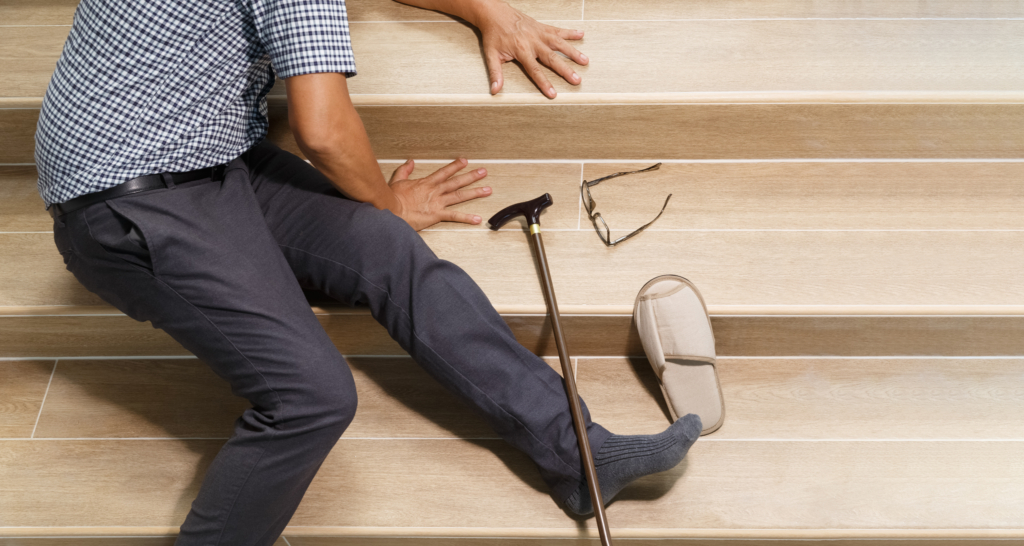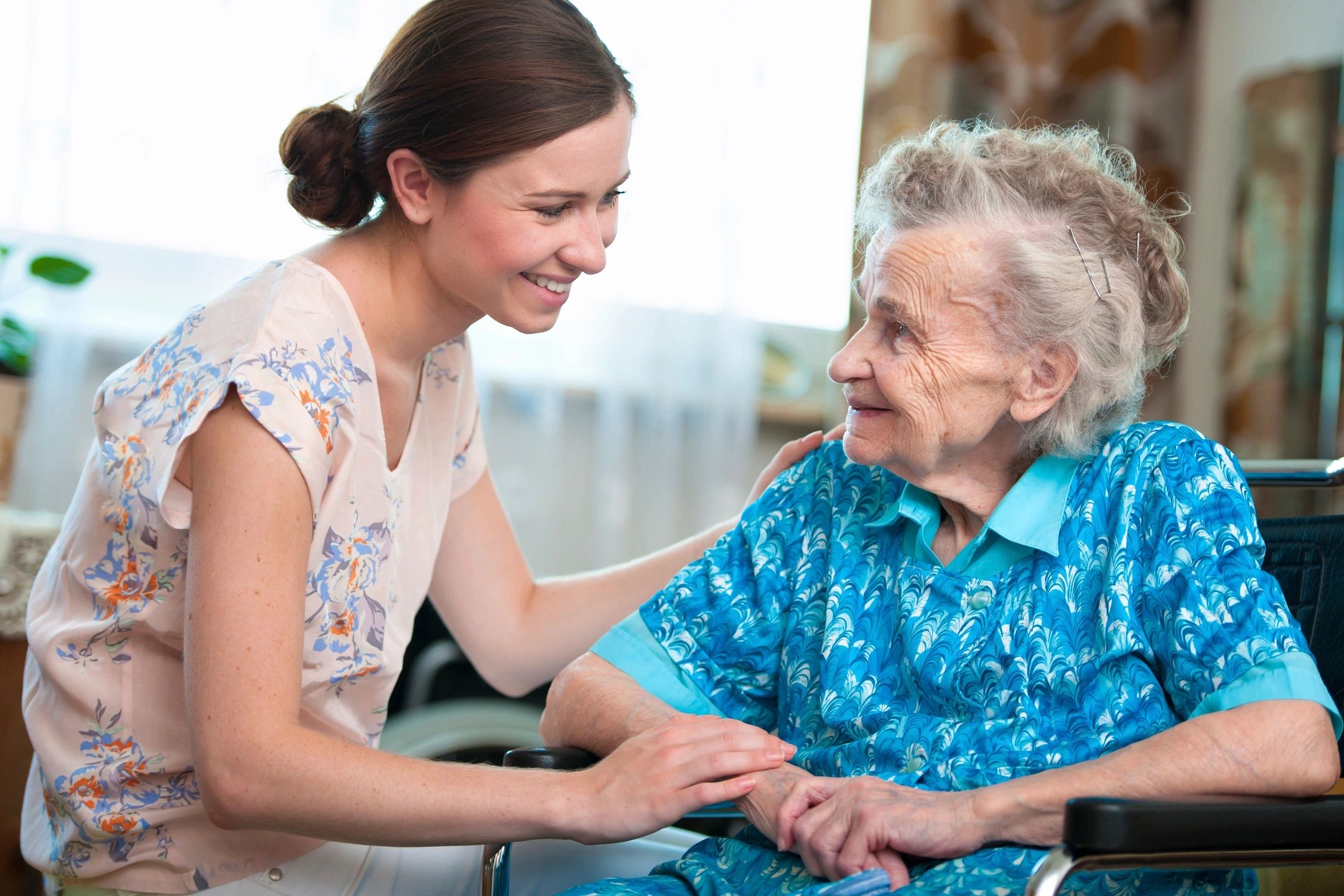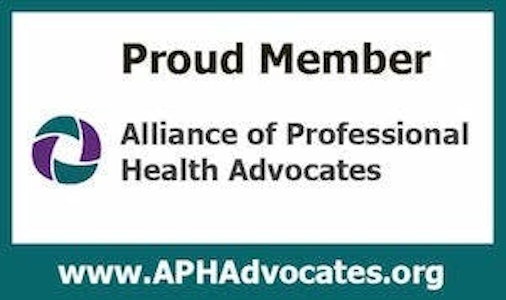Part One: Red Flags One Through Five

No one ever wants to think about their parents getting old and frail, but the reality is that it’s something we all have to face at some point. As adult children, we want to do whatever we can to make sure our parents are comfortable and happy in their golden years. But sometimes, things happen that we weren’t expecting and that can leave to feelings of being overwhelmed – like our parents start showing signs of dementia or becoming forgetful or fall down a flight of stairs. Keep an eye out for these 11 red flags, and if you see them, don’t hesitate to reach out for help. Your parents will appreciate your vigilance in ensuring their safety and wellbeing. Keep reading for the first Five Red Flags you need to look out for!
In this blog post we will start the conversation with the first Five Red Flags. Come back next week and we will finish up the discussion on the remaining 6 Red Flags. To make sure you get the next blog post consider getting on our email list and the next blog post will get delivered to your in-basket. You can sign up HERE. Ok, back to the 5 Red Flags.
It’s important to be aware of the signs that they may need more help than you can provide.
Aging can be a difficult process for both the elderly and their loved ones, but by being proactive and watching for these signs, you can help make the process a little easier. Thanks for reading!

Red Flag Number One: Frequent Falls in the last 3-6 months. You are noticing more bruises, bumps, burns, or cuts.
As we age, it becomes more and more important to keep an eye on our parents’ health and well-being. Signs that they may need help in the home can be subtle, so it’s important to be on the lookout for any changes in their usual routine. One red flag is if they’ve started falling more frequently. This could be a sign of diminished balance and coordination and may indicate that they’re having difficulty getting around the house. If you notice this happening, it’s a good idea to talk to them about their needs and see if they would benefit from some extra help at home.
As our parents age, it’s only natural that we start to worry about their safety and wellbeing. After all, they’ve spent their lives taking care of us, and now it’s our turn to return the favor. However, it’s not always easy to know when they need our help.
Of course, every family is different, so it’s important to trust your gut when it comes to your parents’ care. If you’re worried about them, the best thing you can do is talk to them openly about your concerns and see what kind of assistance they might need. With a little help from us, they can continue to live happy, healthy, and independent lives.
There are many home safety recommendations that can be made such as picking up throw rugs, wearing shoes that don’t slip off easily and are sturdy, having a night light on during sleep hours so they can see better if they have to get up at night to use the rest room. If their stamina is not as good any longer you can put strategically placed chairs from one end of the house to the other to give them places to rest and take a break. Many more ideas for home safety are available.
Quick Win: If falls are becoming an issue ask your parent’s doctor if they feel a physical therapy evaluation might be appropriate or a trip to the doctor’s office for a check-up. In our Patient Advocate Match Directory, we have healthcare professionals that are available such as the company “Keeping Grandparents Safe at Home.” You can view the Directory HERE.

Red Flag Number Two: Unintentional weight loss over past 3-6 months.
One sign that your aging parents may need help in the home is unintentional weight loss over the past 3-6 months. This can be a sign that they are not eating enough or that they are not able to prepare meals for themselves. If you notice that your parents have lost weight, it’s important to talk to them about their eating habits and see if they need help with meal preparation or shopping for groceries.
As people age, it’s not uncommon for them to lose a little bit of weight. After all, metabolism slows down and appetites tend to diminish. However, a significant or sudden weight loss can be a red flag that something is wrong. If your aging parent has lost more than five percent of their body weight in the past six months without trying to diet, it’s worth taking a closer look. There are many possible causes of unexplained weight loss, from dental problems that make eating painful to underlying health conditions like cancer. If your parent is struggling to keep up with their usual eating habits, it’s important to get them evaluated by a doctor. With early intervention, many health issues can be managed effectively.
Quick Win: Again, a trip to the provider’s office is a good idea. If nothing serious is found a consultation with the clinic’s dietician could be helpful to determine what some of the issues are. Sometimes our parents will be more truthful and more likely to share their concerns with a healthcare professional. They may be reluctant to let their family know things are getting a bit rough at home.

Red Flag Number Three: Losing/misplacing things frequently increase in confusion or behavior changes.
As our parents age, it’s natural for us to worry about their well-being. We want to make sure they are safe, healthy, and happy. Sometimes, this can be difficult to gauge from a distance. If you live far away from your parents, you may not see them as often as you’d like. Even if you live close by, they may not be as forthcoming about their needs as you’d hope.
A more subtle sign that may rear its ugly head would be your concern over issues with decision making. Decisions that were once easy are becoming more difficult.
Most of us will experience some changes in our cognitive abilities as we age. However, there are some red flags that may indicate more serious problems. One such red flag is frequent loss or misplacement of things. Has your parent got lost driving to and from the grocery store? These can be a sign that your aging parent is beginning to experience confusion or memory loss. Another red flag is sudden changes in behavior. If your normally even-tempered parent suddenly becomes agitated or angry, it could be a sign that they are struggling to cope with the changes in their abilities. If you notice any of these red flags, it’s important to talk to your parent about the possibility of getting some help in the home.
If you’re concerned about your parent’s well-being, don’t hesitate to reach out to their doctor or a professional care provider. With some extra help around the house, they can continue to live independently and enjoy a good quality of life. Whether it’s hiring a part-time aide or moving to a retirement community, there are options available to help your aging parent stay safe and independent.
Of course, it’s important to take these signs in context. A one-off instance of forgetfulness or a bad mood doesn’t necessarily mean there’s cause for concern. But if you notice a marked change in your parent’s behavior or habits, it might be time to have a talk with them about getting some help around the house.
Quick Win: If these signs are noticed early enough proper treatment can occur and the doctor can put a plan in place to identify what is causing the forgetfulness and determine if it is a certain form of dementia. Early identification will improve your parent’s safety and plans can be put in place to allow them to be at home for as long as safely possible.

Red Flag Number Four: Isolation/Seclusion from Friends/family/activities
As people age, it’s not uncommon for them to want to spend more time at home and less time out and about.
Many people find that as they age, their social circles begin to shrink. Friends and family, their age begin to pass away, and this bring a feeling of tremendous loss and thoughts of “Why am I still here?” This is normal and to be expected, but isolation can become a problem when it starts to impact someone’s quality of life. If you’re concerned that your aging parents may be isolated, look for signs such as them cancelling social plans or skipping activities that they used to enjoy. If you notice that they’re no longer keeping in touch with friends or family members, this could also be a cause for concern. Isolation can lead to a decline in mental and physical health, so it’s important to keep an eye out for signs that your aging parents may need help staying connected to the world around them. If your parents have recently been placed in a new form of senior living or housing keep an eye out for how they are adjusting.
I had watched the progression of how isolation and illness can impact a family. Julie’s first conversation with me was about her own concerns of her forgetfulness. People were asking questions about why she and her husband had stopped going to church. We attend the same church, and I was wondering the same thing. She was always active in church, hosting Bible studies at her home and attending church functions.
Julie had noticed that she was getting more forgetful. She asked me to stop by and see her. She shared her realization of forgetfulness to the point that it kept her from wanting to go to church. She feared that knowing the church members for all these years she couldn’t bear not to remember their names. It was too embarrassing for her. This unfortunately led to the beginning of her journey of isolation and her diagnosis of Alzheimer’s Disease.
There could be other reasons than a disease process. Perhaps they’re no longer driving and can’t get out to see friends and family as easily. Maybe they’ve stopped going to their regular activities because they can’t keep up with the physical demands. Whatever the reason, isolation can be a serious problem for seniors. If your parents are showing signs of isolation, it’s important to reach out and offer help. You can start by talking to them about their concerns and helping them to find ways to stay connected with loved ones. There are also many services available that can provide assistance with transportation, housekeeping, and other needs. By taking action early, you can help your parents to maintain their independence and avoid further problems down the road.
Quick Win: As a part of our healthcare resource directory Patient Advocate Match, we have a nurse that has her business called Senior Social Corner and she finds creative ways to connect seniors and offers a solution to isolation. You can find her on our website HERE.

Red Flag Number Five: Not taking medications correctly.
As people age, they often need to take more medications than they did when they were younger. This can be due to chronic health conditions, changes in diet, and other factors. While most older adults are able to take their medications correctly, there are some red flags that may indicate they need help.
There are obvious potential problems that can occur if the medications are not taken correctly. This can include forgetting to take them, taking the wrong doses, or taking them at the wrong times. If you notice any of these issues, it’s important to talk to your parents and their doctor to make sure that they are getting the care and support they need.
Opioid dependence can also be a concern. With aging comes aches and pains, back issues, severe arthritis, past joint injuries, etc. This is a tough topic, and we did an entire blog post on the Opioid Crisis amongst our elder population. This can impact their cognition and coordination as well as lead them to taking more than prescribed. Their doctors may have them on a “pain contract” where they are trying other ways to deal with their pain as well as dealing with their use of opioids. I will post the link at the end of this blog post if you want to explore that topic further.
It’s important to talk to your parents and their doctor to come up with a plan to make sure they’re taking their medications correctly. This may involve setting up a pill box with their daily medications or having someone check in on them to make sure they’re taking their medication as prescribed. There are some very savvy medications dispensing machines that with an app to a smart phone that will alert a family member when a medication dose is missed. Taking medications correctly is important for maintaining health and preventing serious complications, so if you notice your parents are having trouble with this, don’t hesitate to reach out for help. We will share one of the medication management systems that we have had experience with below at the end of the blog post.
Quick Win: If you notice compliance issues with your parents taking their medication start by sitting down with them and making sure they have an accurate list of their medications. Ask them how they remember to take them and see what process they use to follow the directions. Ask them what each pill is for and see if they can answer correctly. With this interview process you can drill down and find out what the issues might be. Maybe a solution of a phone call to remind them or a pill planner will do the trick.

So, what do you do if you think your parents need help at home but they’re resisting? (This will be a new blog post coming soon) The best way to start is by having a conversation with them. Sit down and have an open discussion about your concerns and listen to their thoughts on the matter. You may find that they’re not ready to admit that they need help yet, but just bringing up the topic can be a big step in the right direction. If they still refuse to accept assistance, it might be time to consider hiring professional caregivers or get some consulting with a Nurse Patient Advocate. (We would love to help!) No one wants to face these tough decisions, but as adult children we owe it to our parents to make sure they’re living in comfort and happiness during their golden years.
What do you do if you see one of these red flags? Don’t panic! First, take a deep breath and remember that it’s totally normal for things to change as our parents get older. They may need more help than they used to, but that doesn’t mean they’re not still capable of living on their own. If you’re feeling overwhelmed or unsure about what to do next, don’t hesitate to reach out for help. There are lots of resources available specifically for adult children caring for aging parents – from online support groups to professional caregiving services. And don’t forget that we’re always here to help too. Just give us a call and we’ll walk you through the options.
As adult children, it can be difficult to know when our parents need help in the home. They’re often fiercely independent and don’t want to feel like a burden. But sometimes, they may need more assistance than we realized. That’s why it’s important to keep an eye out for these 11 red flags that indicate your parents may need help.

No one ever wants to think about their parents getting old and frail, but the reality is that it’s something we all have to face at some point. As adult children, we want to do whatever we can to make sure our parents are comfortable and happy in their golden years. All it may take is a fall down the stairs or noticing difficulties in them making routine decisions to know something is going on and we need to pay attention. It may take a family to get together to discuss some of the concerns.
It is important to be pro-active. Reacting to a healthcare crisis is going to be more difficult than starting the necessary conversations with your parents. It is always better to be prepared and that is what we are here to help you do. More on that topic will be coming soon!
Luckily, we’ve got you covered. We’ve put together a handy checklist of 11 signs your parents may need help in the home. So, print it out and keep it handy for review from time to time. And if you see any of these red flags happening with your loved ones, don’t hesitate to reach out for help. And if you’re not sure where to start, be sure to get on our email list as we address these topics all the time to help both seniors and adult children of aging parent get a feeling of peace of mind knowing they have help to address any issues with their aging parents. If you see any of these red flags happening with your loved ones, don’t hesitate to reach out for help. Thanks for taking time out of your busy day to read this article!
Stay tuned for next week when we discuss Red Flags Number 6-11. See you then! Another great reason to get on the email list would be to get the next blog post with Red Flags 6-11 delivered right to your email in basket.
Linda and I have a combined total of more than 80 years of R.N. experience in many areas of healthcare such as home health, hospice, emergency room, acute care, case management, utilization review and quality improvement and executive nursing.
Our passion is to help adult children of aging parent and seniors navigate the healthcare system and work with you to have a solid plan in place to meet your healthcare goals. This includes working with adult children of aging parents and their siblings to put a plan in place everyone can live with while sharing the responsibilities.
Take care and we will see you back here soon,
Pam and Linda
Resources:
HERO Medication Management System:
Blog Post: Opioid Crisis Amongst our Elderly
Top 5 Tips for Helping Your Aging Parent Manage Medications
Blog Post: A Sibling’s Guide to Caring for an Aging Parent
Blog Post: Forgetfulness; Is this a Normal Sign of Aging?
Video Interview: What I Should Know Before Caring for My Aging Parent






